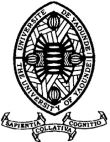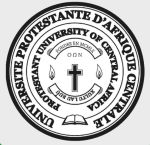Compressive congenital left segmental emphysema: a case report from Kati
DOI :
https://doi.org/10.5281/hra.v1i2%20Apr-May-Jun.4731Mots-clés :
Emphysème segmentaire congénital - Radiographie standard –Tomodensitométrie - KatiRésumé
RÉSUMÉ
L'emphysème lobaire gauche (ELG) congénital est rare, et le segmentaire est une variante topographique de l’ELG encore plus rare, pouvant évoluer vers une détresse respiratoire. Le diagnostic repose sur la radiographie et le scanner thoracique qui permettent d’évaluer la compression, de préciser le diagnostic, de planifier le geste chirurgical et la voie d’abord. Nous rapportons le premier opéré au CHU Pr BSS de Kati. Il s’agissait d’un nourrisson deux mois qui a bénéficié d’une segmentectomie apicale. Les suites opératoires ont été simples avec une bonne évolution radio-clinique deux mois après la chirurgie.
ABSTRACT
Congenital left lobar emphysema (LLE) is rare while segmental emphysema is an even rarer topographic variant of LLE, which can progress to respiratory distress. chest X-ray and thoracic CT scan enable diagnosis permit to evaluate compression, identify associated lesions, plan the surgical procedure. We report the first case of LLE that was operated at the . This was a two-month infant who benefited of apical segmentectomy. The post operative course was uneventful and the clinical and radiological workup was normal two months after surgery.
Téléchargements
Publié-e
Comment citer
Numéro
Rubrique
Licence
Authors who publish with this journal agree to the following terms:
- Authors retain copyright and grant the journal right of first publication with the work simultaneously licensed under a Creative Commons Attribution License CC BY-NC-ND 4.0 that allows others to share the work with an acknowledgement of the work's authorship and initial publication in this journal.
- Authors are able to enter into separate, additional contractual arrangements for the non-exclusive distribution of the journal's published version of the work (e.g., post it to an institutional repository or publish it in a book), with an acknowledgement of its initial publication in this journal.
- Authors are permitted and encouraged to post their work online (e.g., in institutional repositories or on their website) prior to and during the submission process, as it can lead to productive exchanges, as well as earlier and greater citation of published work










